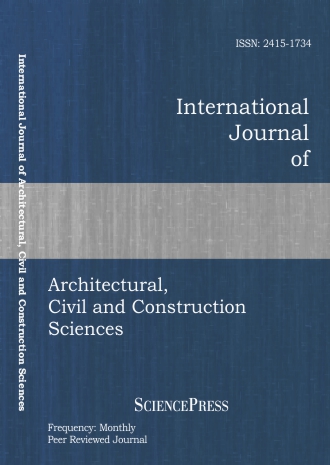
Scholarly
Volume:5, Issue: 9, 2011 Page No: 388 - 393
International Journal of Architectural, Civil and Construction Sciences
ISSN: 2415-1734
840 Downloads
Comprehensive Evaluation on Land Supply System Performance: In Terms of System Transformation
This evaluation of land supply system performance in China shall examine the combination of government functions and national goals in order to perform a cost-benefit analysis of system results. From the author's point of view, it is most productive to evaluate land supply system performance at moments of system transformation for the following reasons. The behavior and input-output change of beneficial results at different times can be observed when the system or policy changes and system performance can be evaluated through a cost-benefit analysis during the process of system transformation. Moreover, this evaluation method can avoid the influence of land resource endowment. Different land resource endowment methods and different economy development periods result in different systems. This essay studies the contents, principles and methods of land supply system performance evaluation. Taking Beijing as an example, this essay optimizes and classifies the land supply index, makes a quantitative evaluation of land supply system performance through principal component analysis (PCA), and finally analyzes the factors that influence land supply system performance at times of system transformation.
References:
[1] Li Rui, 2005. Perfection of Land Expropriation System in China in